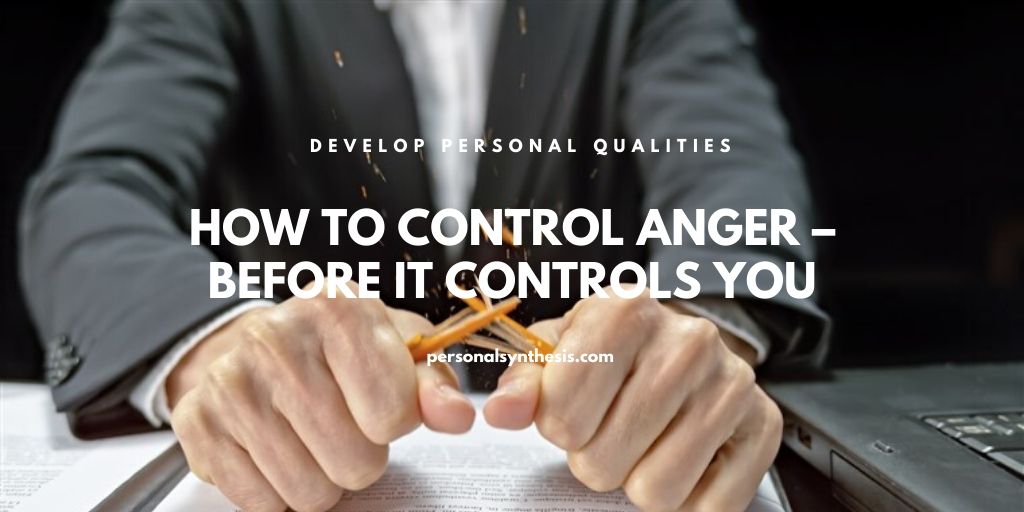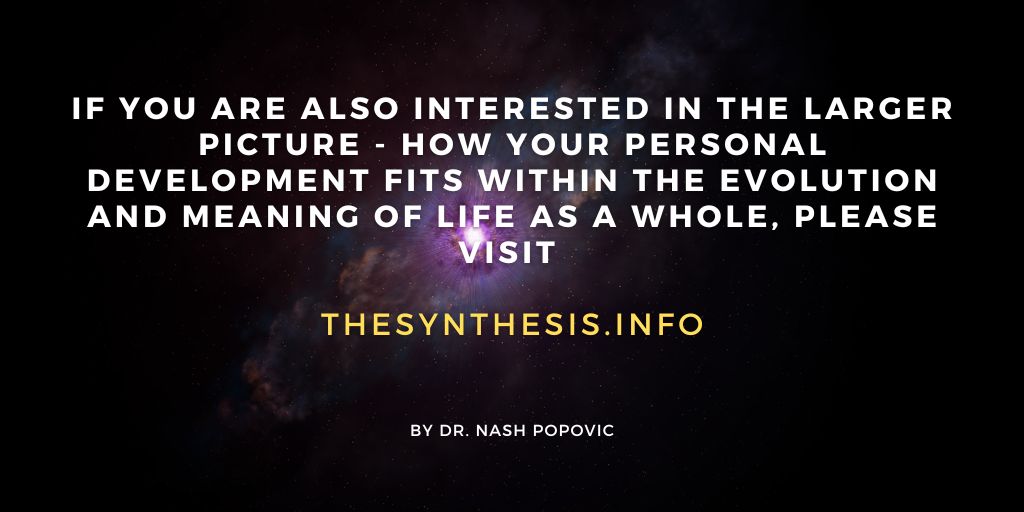How To Control Anger – Before It Controls You

Written by Slobodan Kezunovic
Many people were looking forward to the year 2020, the entering of a new decade and its symbolic nature. However, the year began with rising political tensions around the world, followed by the coronavirus pandemic that has taken most of us by surprise.
The entire world seems to be falling into turmoil, not only because of the virus itself, but because of the negative impacts of social distancing and nationwide lockdowns on the economy, as well as other major consequences we may all experience further down the road.
The mounting financial uncertainty for many of us is causing a whole range of negative emotions that can sometimes be really difficult to deal with. Anger is certainly somewhere at the top of that list.
When our freedom of movement is restricted, even if done for the greater good, it is easy to get angry and in particular with those closest to us. This can have lasting consequences on our relationships well beyond the pandemic.
When it is not properly dealt with, anger can become overwhelming and interfere with all spheres of our personal and professional life. It can cause us to overreact and lash out at our friends or colleagues, slowly turning us into a person that others would rather avoid.
In addition to ruining our relationships, prolonged and intense anger can also impair our cognitive function and decision making capabilities, which can place a huge burden on our workplace performance.
Of all the negative emotions we experience throughout life, anger has shown to have the greatest detrimental effects on our health and wellbeing in general.
Anger is linked to various health problems such as high blood pressure and cardiovascular disease, as well as increased cortisol levels which can weaken the overall efficiency of our immune system. Needless to say, a compromised immune system is the last thing you need during a pandemic.
So, let’s take a look at some of the ways we can deal with it.
How Can We Be More in Charge of Our Anger?
The secret to being more in charge of your angry reactions is to separate your feeling from your reaction. For example, you may feel hurt and react angrily. If you realise that your feeling hurt is not the same as your reaction, you will be free to choose other ways of reacting that are perhaps more helpful – or you can even chose not to react at all.
You can do this in the following way: when you realise that you are starting to swell up with anger, just stop for a moment and ask yourself, “What do I feel?” You will probably feel that you are injured in some way. Acknowledge the feeling and then ask yourself, “It may be justified to get angry but will it be of any help here?”
You will realize at this point that it probably won’t help, but then you will wonder “What do I do with that anger that wants to burst out?”
There are a number of ways we can deal with our emotional reactions.
Channelling Emotional Reactions
In order to best equip yourself for navigating situations that may trigger your anger, you need to know the different ways that anger can be channelled. Some of them will be useful, while others can actually make matters worse if you don’t recognise that you are doing them, so it is important to be aware of how they function.
Suppression
Suppression simply means blocking your emotional reactions. Suppression of anger can be useful when dealing with the actual situation needs to be prioritised. Some examples are emergencies, dealing with children, or situations in which it is important to leave a good impression (e.g. business meetings or job interviews).
However, suppression should only be temporary as it is well known that long-term suppression of anger can seriously jeopardise our mental and physical health.
If you have been in a stressful situation where you had to suppress your anger, it may be helpful to later on unload these pent-up emotions in a safe environment.
You can do this by, for example, writing about it. Once the emotion starts coming up, acknowledge it and then just let it pass through. After it has subsided, you can try to develop a strategy for dealing with the trigger situation in the future to prevent the emotion from reoccurring. Just make sure that you don’t reinforce your anger with negative thoughts, as we will explain below.
Reinforcement
Reinforcement is something you want to avoid at all cost when it comes to anger, because it involves intensifying our emotional reactions by creating a loop between mutually supportive thoughts and emotions.
Anger most often creates thoughts that are supposed to justify it, and in turn these thoughts make you even angrier.
This is important to remember, because if you are able to realize that you are stuck in a negative loop, you have a much greater chance of breaking free of it.
On the flip side, you can try to reinforce positive reactions with good thought patterns to reduce the risk of succumbing to anger in the future.
Displacement
Displacement is another way of channelling anger that can do more harm than good. Have you ever thrown your phone after a conversation that made you angry? This is displacement.
Rather than responding to what has triggered our emotional reaction we direct it towards something else. It usually involves projecting our anger onto others who may have nothing to do with the trigger situation.
When you are aware of how damaging displaced anger can be, you have a much better chance of avoiding situations where, for example, you may treat your loved ones unfairly because you had a bad day at work.
Displacement can sometimes be helpful though. If you can’t control your anger and have to let it out, you can throw or hit a cushion, but try to avoid taking it out on other people, or your precious phone.
Transformation
Another way of channelling emotional reactions is through transformation, which simply means substituting one emotion for another.
Our positive and negative emotions are mutually exclusive. This means that, for example, you cannot react to something with anger and love at the same time.
So if you can invoke another strong emotion, such as the sense of power of being in charge of your reactions, humour, or passion, the anger may dissipate, as one emotion is transformed into another.
In some cases, it even comes with a bonus. We all know that making love can be very passionate after an argument.
Diffusion
This is often the most helpful option. If possible, first remove yourself from the trigger situation and then you can defuse your reaction is several ways: share your feelings with a sympathetic listener, go for a walk, or simply laugh it off.
You can also do some breathing exercises to reduce the excitement that comes with anger, as well as positive visualization or listening to some soothing music.
So, now you have some choices what to do with your reactions, but what about their underlying feelings? You definitely need to acknowledge your feelings and then perhaps re-evaluate them, but this is a whole other topic for itself.
You can find everything you need to know about feelings in the complete Personal Synthesis guide.
Let’s turn now to dealing with trigger situations.
Dealing With Situations That Trigger Your Anger
It’s all very well to focus on your feelings and emotional reactions, but we also need to deal with the actual situation. Here are some tips:
- Think before you speak. When things start to heat up in situations that involve other people, it is so easy to say or do something that you will later regret.
- If you can, press your mental reset button. This will help you to restart and deal with the situation more constructively.
- Once you have managed to calm down a bit and think clearly again, share the problem you are facing with the other party, but try to do so in an assertive but non-confrontational way.
- Identify possible solutions. Work on resolving the concrete issue at hand instead of focusing on what made you mad. Try to remind yourself that anger never solves anything and that it can only make matters worse.
- Avoid criticizing and placing blame on others as this will only make them defensive. Try to understand them without necessarily condoning their behaviour. Instead of fighting each other, enlist the other party to fight the problem with you.
- If appropriate in a given situation, try to use humour to release the tension. Lightening up a bit can in many cases help diffuse a stressful situation.
Dealing with your emotions and feelings is only one part of your journey of personal development, which is why Personal Synthesis offers you a comprehensive guide that will help you develop and improve in all areas of your personal and professional life.
Subscribe today and get a jump start towards living a healthy and skilful life!
Personal Synthesis is a handy ‘one-stop-shop’ that brings together all the areas that play a vital role in our everyday lives, from self-awareness to intimate relationships. The materials are the result of twenty years of research and have evolved through the experience of running numerous personal development programmes with the general public, young people and university students.
To learn more, please visit the Personal Synthesis materials that cover this and many other topics.
Slobodan Kezunovic
Slobodan Kezunovic has an academic background in business management and marketing, but has been a lifelong student of personal development and a promoter of dealing with life’s challenges in a healthy and constructive way. Psychology and human relations have always fascinated him and have been a key driver on his own road to personal development, believing that the only way you can change the world is by changing yourself. Slobodan works as a copywriter and editor with over 7 years of experience writing sales copy and marketing content for several industries. He has been following Dr Nash Popovic’s work closely and collaborates with him as a contributor to the Personal Synthesis project, with the goal of helping people live a more prosperous and skilful life.



